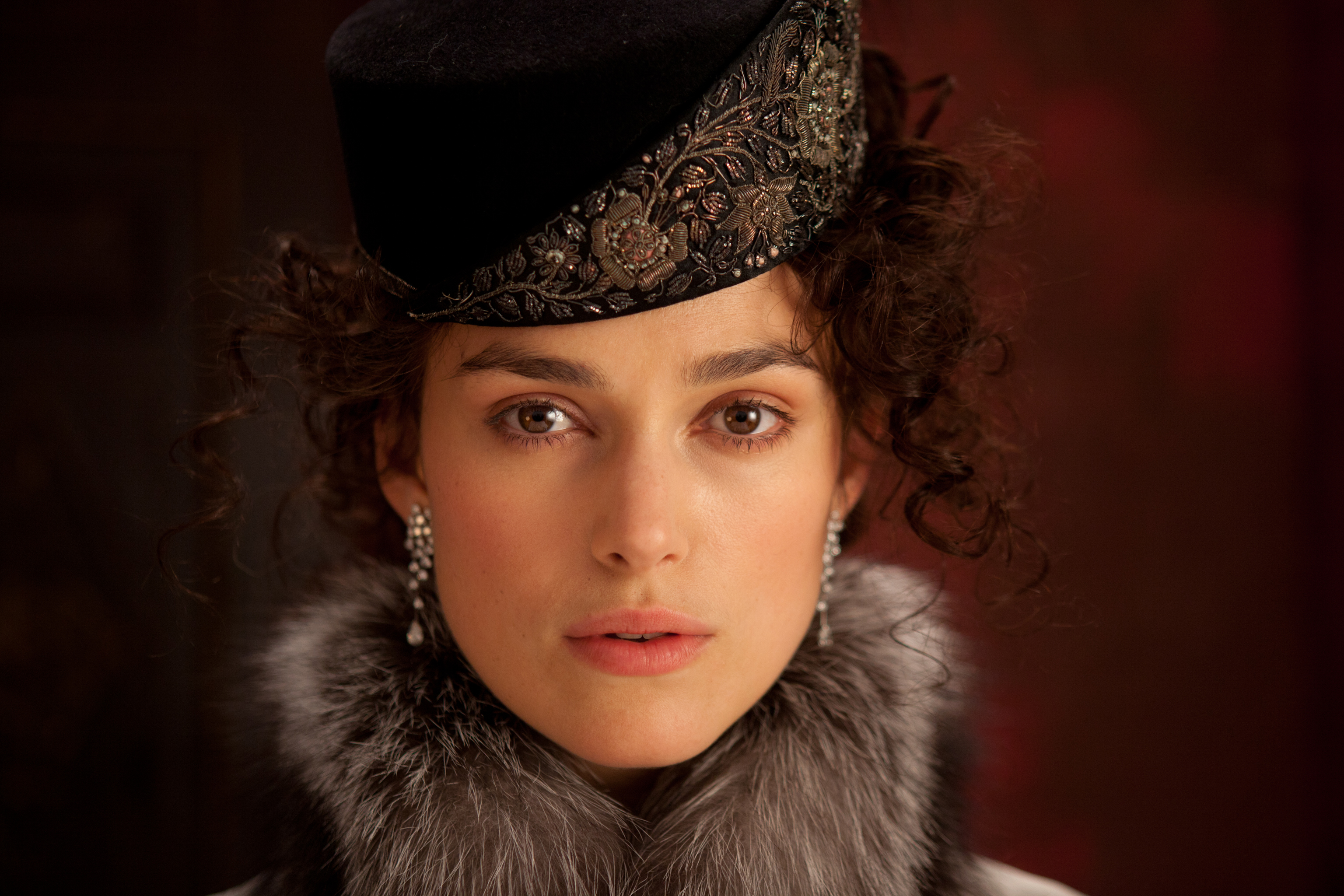Every generation, Anna Karenina gets remade because of its brilliant dissection of passion vs. society’s rules. People are drawn to Anna’s tragic situation of loving a man at the wrong time. Society shuns her when she goes to various theatrical and operatic events. In Joe Wright’s Anna Karenina, the concept of Anna being on display is used as the central conceit, as if we are watching a play unfold in front of us. With a conceit that clever, it is a shame that Wright takes too many liberties with the central story to leave a lasting impression or challenge to the audience.
For those that don’t know the story, please pick up the book: it is one of the great novels of our time. Anna Karenina (Kiera Knightley), married young to Alexi Karenin (Jude Law), becomes enamored with a senior Russian officer named Vronsky (Aaron Johnson). Since Anna is of high standing, she is shunned from society and irks the ire of Anna’s sister Kitty (Alicia Vikander), who had previously turned down the proposal of Levin (Domhnall Gleeson). The mutual pain experienced by Kitty and Levin draw them close together while Anna experiences a slow fall from grace as a result of her pursuit of love.
Wright’s version hooks you right away, using moving props/sets to change settings instantaneously. This move first disorients the audience, but is welcome since Tolstoy’s novel is several thousand pages, and constantly reestablishing setting would take way too long and cost lots of money (particularly humorous is the theatre’s version of a racetrack). The stage also showcases the fact that Anna becomes the main attraction at any event after the affair becomes public, as she becomes the main performer and the actors don’t move until they need to highlight her. Credit goes to the set designers and editors for seamlessly weaving multiple sets together to the point that the audience is never really confused where the setting is supposed to be.
Wright also takes liberties with the story, and here is the central failing and eventual downfall of his Anna Karenina. Initially, the storytelling is inspired: Anna is usually the tragic protagonist. Here, she is very much more of a villain to Jude Law’s upstanding Karenin. This move is interesting and serves the B story very well, but turns Anna and Vronsky into the least interesting characters in the movie. Anna become a one note “anything for love” character and Vronsky doesn’t get enough screen time to come off as anything more than a womanizer. Wright chose the regretful middle option in this scenario. He should have used his storytelling conceit and adopted it to Tolstoy’s version, or he could have pushed Anna and Vronsky to the background in favor of telling the cute little love story between Kitty and Levin. It feels like Wright spent all his time to get Knightley to agree to the role and felt he had to showcase her.
My take on Anna’s character is a mistake of the writing, not of Kiera Knightley. She really gives it her all and is very good at providing some nuance to her only personality trait. Aaron Johnson is the weak link here; half the fault of the writing, half the fault of his lack of chemistry with Knightley (at least he can go back to being Kick Ass). Jude Law is quite good and Karenin; he tries to be very supportive of his wife’s desires to a certain extent and then stands firm on his beliefs. The real standouts here are Alicia Vikander and Domhnall Gleeson who really click as lovers joined by shared heartbreak. It only takes a few scenes for the audience to be really rooting for them to end up together.
Maybe Anna Karenina was doomed from the start: let’s use British actors in a classic Russian story! I admire Wright’s ambition, just not his execution. The next time he and Kiera Knightley work together (this was their third time) let’s hope the British pair chooses a classic British novel. Leave Tolstoy’s works to the likes of Anton Yelchin.

